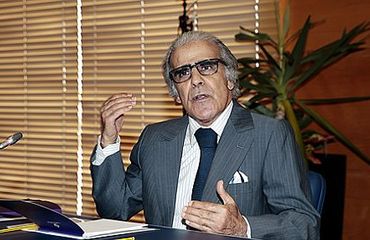São Paulo – Morocco will adopt a floating exchange rate regime to replace the current fixed exchange rate regime. The date for the replacement will be announced until the end of the month, according to information published by news outlet Maghreb Arabe Presse (MAP).
This week, the governor of Bank Al Maghrib, the country’s Central Bank, Abdellatif Jouahri, said that the measure will support the reforms being implemented in Morocco, especially those regarding productivity and competitiveness, and will allow it to better face external shocks without undermining foreign exchange reserves.
“We have delayed the launch of this reform by 6 months to better prepare the operators [of this market],” said Jouahri, according to MAP. He added that the monetary authority met with representatives from the banking sector, public and private institutions, universities and exchange offices to discuss the issue.
The country is worried with the possibility of a strong devaluation of the Moroccan dirham after the floating regime goes into effect. At the end of last year, Egypt floated the Egyptian pound and soon it suffered a strong devaluation, but it was followed by a recovery of foreign investments and restoration of foreign exchange reserves.
But Morocco’s macroeconomic scenario is much more solid than Egypt’s. According to Jouahri, the floating exchange rate “comes amid a favorable scenario, after all requirements are in place for putting the system in place, namely fiscal sustainability, an acceptable budget deficit and debt levels, adequate foreign exchange reserves, and inflation control.”
“Those who now speculate regarding a depreciation of the dirham as the exchange rate system change draws near are miscalculating,” MAP quoted the Bank Al Maghrib’s governor as saying. “At first we will remain pegged to a basket that’s 60% euro and 40% dollar, and then we’ll broaden that band gradually to protect the dirham,” he added.
He also said the system shift is voluntary, gradual and progressive, and that it comes after an option for globalization, and an external policy geared mostly towards Africa.
The spokesperson for the Moroccan government, Mustapha Khalfi, said the concerns are “justified” but guaranteed that “cautionary action will be taken, including a monitoring and support system.”
*Translated by Sérgio Kakitani & Gabriel Pomerancblum




